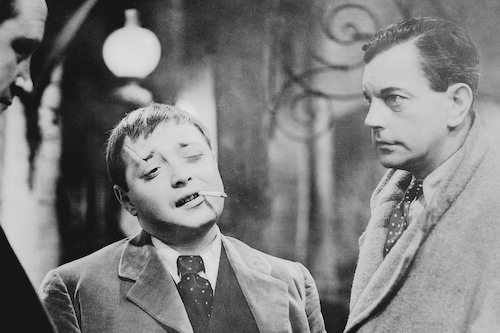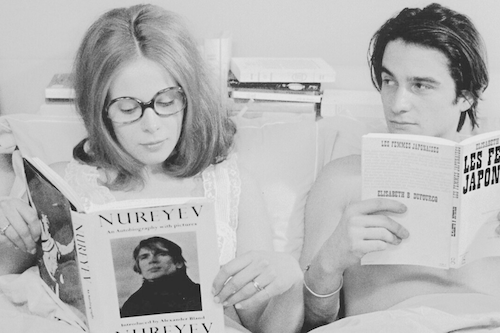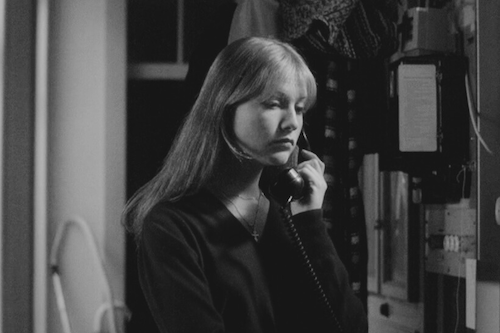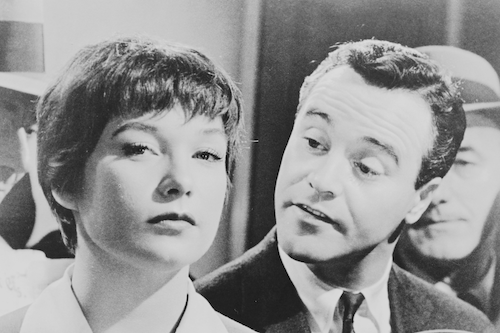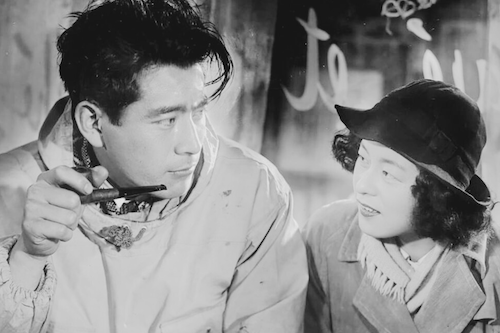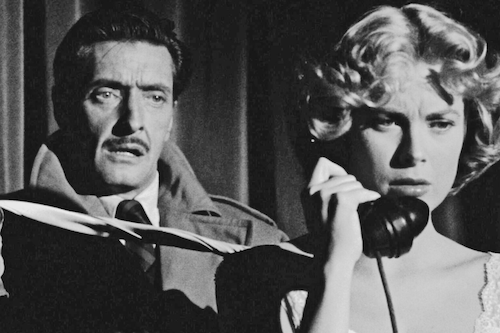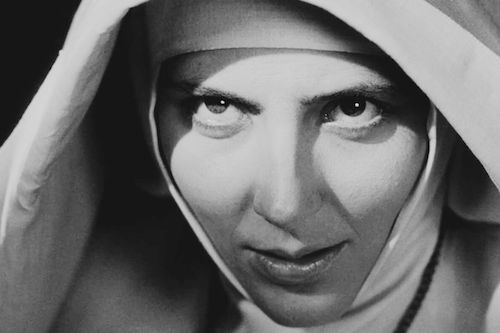This Week in Cinema, I Learned…Aug 4-10 2024
Written by Cameron Geiser
Welcome to This Week in Cinema, a yearlong film criticism project wherein I will be watching a new film that I haven't seen every single day.
Now this is what I’m talking about! This week's films were all lesser known titles from these legendary filmmakers. From Truffaut and Kurosawa to Godard and Wilder, each film here is probably the fourth or fifth title you'd think of when these names come up. Since I've seen so much of their work already it was time to sweep up all these lesser known movies from the masters of cinema. Heck, Hitchcock himself has so many films that he's here twice this week! So get comfy folks and break out your notepads and movie snacks because it's homework week, and we're turning over every cinematic rock we come across!
August 4th
The Man Who Knew Too Much (1934)
4/5
Alfred Hitchcock's first version of The Man Who Knew Too Much is a tightly wound political conspiracy thriller with the infamous character actor Peter Lorre's first English speaking role! The general concept of paranoia and of getting wrapped up in the larger machinations of dark conspirators and puppeteers are tricks that Hitchcock knows well, and this film employs them confidently. When a couple at an international ski resort accidentally witness a murder up close and obtain the slain man's dying words, a request to deliver crucial information to the British consulate- things get interesting. In turn the targeted terrorist group planning to assassinate a politician kidnaps their daughter, manipulating them into silence. The husband investigates further and initiates one hell of a chair fight before it all erupts with a massive shootout. The Man Who Knew Too Much was a lot of fun, that chair fight is gonna be stuck in my mind for some time- it was entirely unexpected!
August 5th
Bed and Board (1970)
4.5/5
François Truffaut's Bed and Board isn't just a great movie, it's the third in a series of four films (I think…) that began with the infamous filmmaker's first feature, The 400 Blows. Yes, this was an unexpected continuation of the indelible Truffaut character, Antoine Doinel (Jean-Pierre Léaud). While the character of Antoine Doinel here is more subdued than the fiery spirit of the young boy that he was in The 400 Blows, I was struck by the pleasant rhythm of Bed and Board, and the charming world he created for his autobiographical character to mature in. If you told me that this film and Jean-Luc Godard's Tout Va Bien formed the film foundation for a young Wes Anderson, I would believe you. There's some uncanny quirkiness here that I found charming as each development with these side characters in Antoine's life layered the world with a believable sense of personality. Like the mysterious neighbor that everyone calls “The Strangler”, but is actually just a TV comedian who does bad impersonations. Or the cafe owner who constantly chums it up with everyone and the waitresses who's casually obsessed with Antoine.
This time we’re following Antoine's life as a husband married to Christine (Claude Jade) from Stolen Kisses. She does piano lessons in the apartment while he tries to dye flowers in the courtyard, occasionally reminding his wife’s students of their bills if they've been forgetting them. The story follows the birth of their first child and Antoine's eventual infidelity with a Japanese correspondent he met through the job he eventually gets with an American car company. This was one of those thoroughly nourishing films, the kind that make you resolute in reaffirming a love of cinema and storytelling proper. In the film nerd debate of Jean-luc Godard versus François Truffaut, I'm going with Truffaut every time.
August 6th
Every Man for Himself (1980)
4/5
Jean-Luc Godard's Every Man for Himself was his return to commercial narrative filmmaking, with him even calling it his “Second first film”. The story follows three characters, "Paul Godard" (Jacques Dutronc) a TV director, his ex-girlfriend Denise (Nathalie Baye), and a sex worker named Isabelle (Isabelle Huppert). Meditations on relationships, freedom, and work fill out the runtime in an effective manner. It's all at a lackadaisical pacing that works because the film flows on as ruminations on love and other kinky (and awkward) notions get the same level of discourse as renting out old apartments, organizing interviews, and after school sports. You know, life. I really appreciated the performances and the unique cinematography choices with Every Man for Himself. It may not be his best, or my favorite, of the films of his that I have seen so far, but it's certainly a solid entry in his oeuvre. Frankly, the more I see of Jean-Luc Godard's work, the more I do appreciate him and his impact on cinema, but I'm still Team Truffaut on this one.
August 7th
The Apartment (1960)
4.5/5
Billy Wilder's The Apartment is a dark satirical comedy that arrives after he'd already crafted many hits and classics such as Double Indemnity, Sunset Boulevard, Some Like it Hot, and Ace in The Hole. Starring Jack Lemmon and Shirley MacLaine as two lonely, lowly, office drones who both drudge along at a massive insurance company in New York City- The Apartment takes on cynical capitalism and choses love at the end of the day. Both Baxter (Lemmon) and Fran (MacLaine) dream of climbing that corporate ladder by allowing themselves and their property to be abused, they hope to be rewarded with promotions or the easy life for their shame and suffering. You see Baxter is a popular guy at the company because he has a good apartment in town and he allows the managers to orchestrate their illicit affairs while he waits outside.
When he grumbles about having no time for himself one afternoon his boss gives him two tickets to see a game in town, and Baxter asks Fran the elevator girl if she wants to go with him. However she has plans, which just so happen to be with Baxter's Boss! She wants to ditch him but he convinces her that he is committed to divorcing his wife. Later at the Christmas party the boss’ secretary reveals to Fran that the big guy has had many affairs, including with her! Everything spins out of control for Fran and Baxter, but much as in Double Indemnity and Sunset Boulevard with ineffectual male characters being led by bombastic female characters, this one is more restricted and less tragic. Yeah, these characters treading water in the corporate wasteland of insurance can seem doomed, but not this time. This time the beleaguered and overworked little guys won out. Highly recommended.
August 8th
Scandal (1950)
4/5
Akira Kurosawa’s Scandal reteams the legendary director with his two most frequent collaborators, Toshiro Mifune and Takashi Shimura, in one of the best filmmaking triptychs to ever exist. Scandal focuses on the idea of the paparazzi as amoral jackals that twist the truth for their own profit. Ichiro Aoye (Toshiro Mifune), a painter, and Miyako Saijo (Shirley Yamaguchi) a famous classical singer, are both staying at the same hotel in the mountains by chance. When Saijo misses her bus Aoye offers her a ride on his motorcycle. Upon returning to the hotel the paparazzi swarm her and Aoye as she denies them an interview. Feeling attacked, they plan their revenge by taking pictures of the two on a balcony and printing a false scandalous story about their nonexistent love affair. This creates a media circus surrounding the two and when Aoye makes his intentions to sue the press known, a lowly lawyer approaches him.
Hiruta (Takashi Shimura) also has a distaste for how the press, particularly the paparazzi working for Amour (the publication pushing the media madness) has acted and offers his services to Aoye. However the editor of Amour discovers that Hiruta has a sick daughter and bribes him to throw the trial in order to pay for the child's medical needs. Eventually guilt and shame get the better of Hiruta, and even though it can be frustrating to watch a character frozen by the throes of moral existentialism, the ending makes the most of this tension and ties the film’s ending together sufficiently. Scandal shared a lot of similarities with Orson Welles’ Citizen Kane in that both were critiques of the press and those who wield that power of public perception, though Welles was more individually specific with his cinematic snark whereas Kurosawa merely aimed at the amorphous idea of the press as a whole.
August 9th
Dial M for Murder (1954)
4/5
Alfred Hitchcock’s Dial M for Murder is classic Hitchcock in calculation, while not quite reaching the heights of some of his more famous films. Tony (Ray Milland) learns of his wife Margot's (Grace Kelly) affair with another man, Mark (Bob Cummings). Tony decides to have her killed but doesn't want to do it himself so he blackmails another high society associate, Charles Swann (Anthony Dawson), to do the dirty deed himself. With meticulous planning in place they attempt to enact their plan but when it goes off the rails Tony and Swann must act quickly to cover up the mistake. Hitchcock’s typical detailed set-ups for satisfying payoffs is on full display here. Though while Hitch gets a little lost in the details in the back half of the thriller, it's still a fairly solid film. Certainly worth a watch!
August 10th
Black Narcissus (1947)
4/5
Michael Powell and Emeric Pressburger’s Black Narcissus follows a group of Nuns in the 1930s that are given an old Indian palace high in the Himalayas to turn it into a convent for the community in the valley below. Once the nuns are selected for service and arrive in the mountainous region, they are beset by the altitude, the local population and their alternate beliefs and customs, not to mention their own insecurities and weaknesses. I was very impressed with Black Narcissus. The excellent pacing paired with the intricate plotting allows for each Sister to have their own personal downfalls amidst the degradation of the situation as a whole. I haven't seen a film do psychological isolation and descent into madness this well since The Shining. Besides the thoroughly good performances from the whole cast, I was struck by how beautiful the composition, framing, and staging was. It was all so thoroughly in sync with story and quality of image seemingly at the forefront of the filmmakers minds that I found myself quite satisfied by the time the credits rolled. This one is definitely worth a watch!
Cameron Geiser is an avid consumer of films and books about filmmakers. He'll watch any film at least once, and can usually be spotted at the annual Traverse City Film Festival in Northern Michigan. He also writes about film over at www.spacecortezwrites.com.


